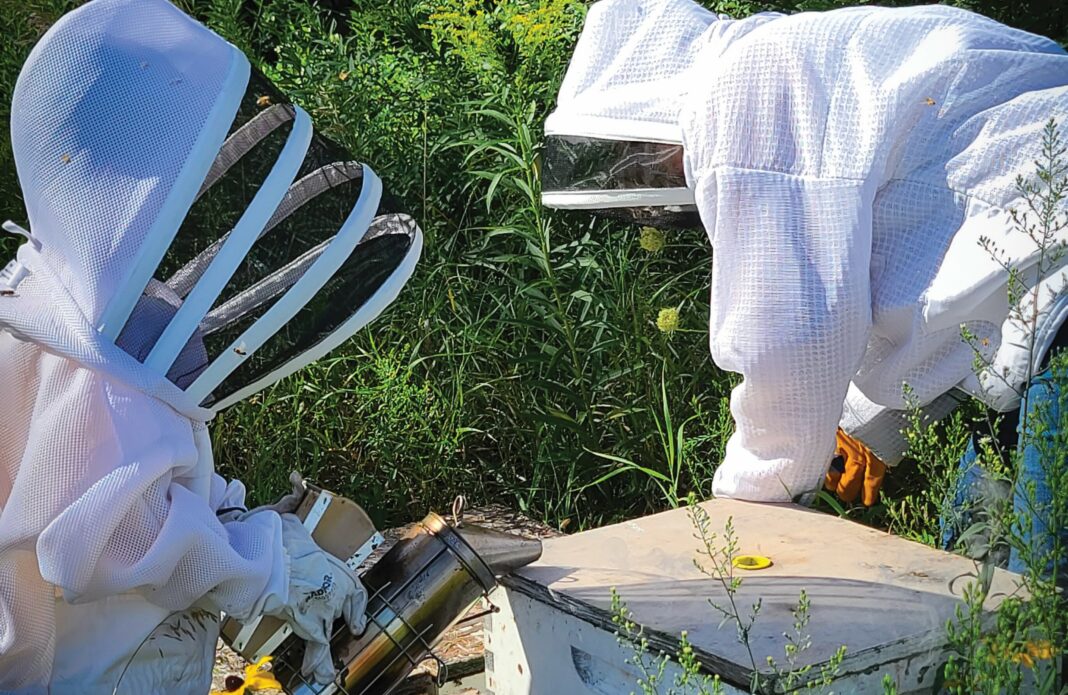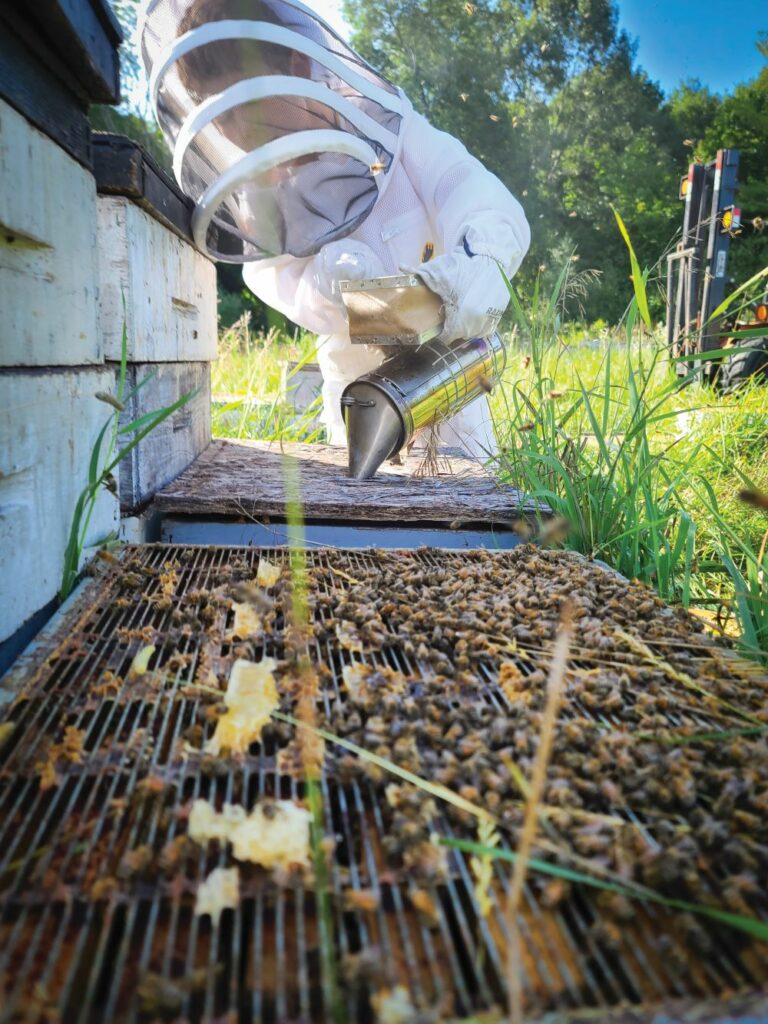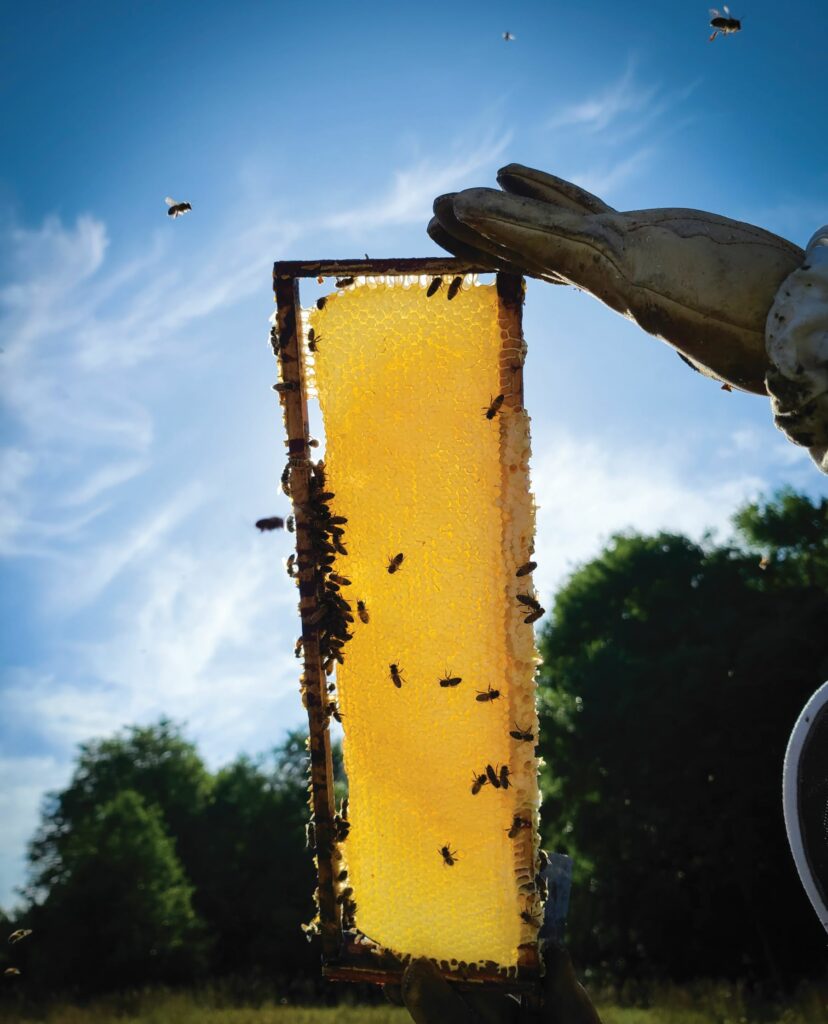If you’ve ever watched footage of a beehive on National Geographic or The Discovery Channel, you’ve seen the activity, coordination, and effort that goes into the production of honey.
That same level of commitment and industriousness of the bees can be seen in the owners of Hilbert’s Honey Co. in Traverse City, Michigan. For over 130 years, these Cherryland Electric Cooperative members have cultivated a tradition of hard work and community, spanning four generations.
Today, Larry and Geana Hilbert, along with their son Keith (a fifth-generation beekeeper) and his wife Michele, continue this legacy through Hilbert’s Honey Co., a thriving honey farm that parallels the dedicated and cooperative nature of the bees they care for.
The Hive Mentality
Much like the electric cooperative principles themselves, the success of the colony relies on teamwork and community. The Hilbert family epitomizes this spirit in their beekeeping endeavors.
“The hive mentality is all about working together,” says owner Larry Hilbert. “You never quit. You constantly reinvent yourself; once you overcome one challenge, a new one arises.”
This collaboration moves beyond the farm and into various communities. With 7,700 hives spread across farms in northern Michigan, the generosity and understanding of local farmers is indispensable. This cooperation ensures the bees can pollinate effectively while landowners benefit from increased crop yields.
Challenges and Resilience
“Farming can be a difficult, unpredictable way of life,” reflects Larry. “You need to be resilient and ready to face whatever comes your way.”
Whatever comes your way can include weather, seasonal issues, and other environmental problems—it can also include less likely obstacles such as black bears who are more than happy to lumber through the crates, tip over a hive, and raid it for its delicious nectar.
So, maybe not exactly like other farming.
The Role of Electricity
While the bees power the hives, electricity plays a vital role in the Hilberts’ operations. From the tools used for extracting honey to the warming tanks used for bottling, any power outage can significantly disrupt the work.
“We know people downstate who seem to have power outages frequently,” said Larry. “But, you know, I look over my lifetime on the farm and I can only remember a few. We take our reliable power for granted.”
Balancing Big Business and Small-Town Charm
What’s not taken for granted is the sincere obligation the Hilberts feel toward their bees and the important work they do for both our natural and economic worlds. According to the USDA, bees pollinate approximately 75% of the fruits, nuts, and vegetables grown in the United States and are responsible for more than $15 billion in increased crop value each year.
While Hilbert Honey Co. is only a small part of that big business, they feel the same pressures of other farmers and beekeepers. However, they insist that in the end—it’s worth it.
“The work itself helps evaporate the stress,” Geana Hilbert says. “Going outside and working all day in nature is breathtaking. It’s a lifestyle—a true labor of love.”
Looking ahead, the Hilberts are dedicated to promoting their products, urging customers to stop by their on-site store, and continuing to share their passion for beekeeping and the sweet rewards it brings.
In every jar of Hilbert honey, you’ll find not only the nuanced flavors of northern Michigan, but the essence of teamwork, resilience, and community—a testament to the hardworking bees and the family who cares for them.








